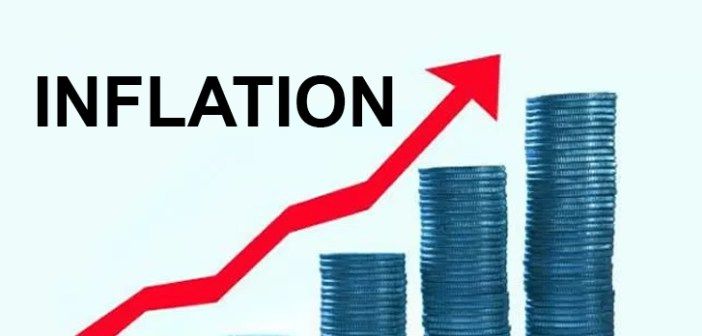Nigeria: Rate Cuts Unlikely Despite Slowing Inflation
Members of the Central Bank of Nigeria’s Monetary Policy Committee (MPC) remain unconvinced about starting an easing cycle, even as inflation slowed for the fifth straight month in August to 20.12 percent.
This position was made prior to the release of the inflation report for July and August, which showed continued easing. The 12-member monetary authorities maintained that a sustained policy stance was necessary to further tame inflation and ensure price stability – even as market bets on a token rate cut when the MPC meets next Monday and Tuesday.
It is likely that this position won’t change, as some economists say Nigeria is not out of the woods yet.
Also, the United States’ Federal Reserve is expected to cut rates on September 17, which could redirect capital flows to emerging markets such as Nigeria. Analysts say the MPC is mindful that lowering Nigeria’s policy rate may reduce the appeal of its assets to yield-hungry investors and shift funds to more attractive EMs.
Olayemi Cardoso, CBN government, had said in his statement that despite a moderation in headline inflation and a projected downward trend, underlying inflationary pressures remain elevated, reflecting persisting structural constraints in the supply chain and the lagged impact of excess liquidity from prior years of extensive monetary accommodation.
“There is enough justification for a sustained tightening of monetary policy. The pace of disinflation remains tepid and insufficient to warrant any easing of monetary conditions, and underlying inflation pressures and high stock of money supply call for a firm response before price stability is threatened,” Cardoso said in a statement after a July 22nd committee meeting published on the CBN’s website on Monday.
“Given the persistent uncertainty in the policy environment and underlying price pressures, monetary policy will need to maintain its current stance until risks to inflation recede sufficiently.”
However, Razia Khan, chief economist for Africa and the Middle East at Standard Chartered Plc, believes the higher-for-longer tightening, the new found stability of the naira and lower food and fuel inflation should open doors for the start of an easing cycle.
“Although market rates have rallied faster, we see a cautious 150 basis points of easing over the September and November meetings combined, with more policy rate cuts to follow in 2026 and 2027 as Nigeria formalises its move toward an inflation target,” Khan said.
Why there may be no rate cut in September
Aloysius Uche Ordu, a member of the MPC, said even though the country’s inflation continues to trend downward, “Nigeria is thus not out of the woods yet,” citing a rise in core and food inflation.
“I continue to believe that our current tight monetary policy stance remains valid to rein in inflation. There is no such thing as double-digit and stable inflation. Our tightening stance is thus warranted for as long as it takes until inflation expectation is well anchored,” Ordu said.
“Attaining low inflation will help to restore trust in the Naira and deepen Nigeria’s domestic capital market,” he added.
Though core inflation, which excludes the prices of volatile agricultural produce and energy, dropped year-on-year, it stood at 1.43 percent in August 2025 month-on-month, up by 0.46 percent compared to July 2025 (0.97 percent). Hence, the core inflation increased at a decreasing rate.
Emem Usoro, another member, viewed “discussions around monetary easing as premature,” citing the strengthening of the U.S. dollar, renewed uncertainty over trade policy and domestic structural vulnerabilities.
“Despite the headline tightening, there have been signs of episodic excess liquidity in the banking system, raising concerns about speculative tendencies in the FX market and the risk of undermining recent exchange rate gains if left unchecked.”
A likely Fed rate and MPC
The Federal Reserve chair Jerome Powell had signalled a possibility of a US rate cut, an indication that’s much clearer as labour market condition continues to slow.
Analysts are betting that the US central bank will lower the policy rate by a quarter percentage point (25 bps) to the 4 percent – 4.25 percent range when it meets between September 16 and 17.
This bodes well for Nigeria as it potentially enhances Africa’s most populous nation’s investment appeal to foreign investors.
“A lower US interest rate would diminish the relative attractiveness of US assets, prompting global investors to seek higher returns in emerging markets like Nigeria,” analysts at FBNQuest Merchant Bank said in a note recently.
“Nigeria will likely experience increased portfolio inflows, particularly into the fixed-income market.”
A renewed interest by offshore investors could potentially bolster foreign exchange reserves that have surged to over $41 billion — the highest since December 2021 — and support the stability of the naira, which has remained within a narrow band of 1500/1545 per dollar in recent months.
But a rate cut may scupper the attractiveness of Nigerian assets.
Nigeria’s central bank has lifted its key interest rate by 16 percentage points to 27.5 percent in the past three years to contain double-digit inflation that’s been stoked by a 73 percent depreciation in the naira against the dollar.
It also raised private banks’ cash-reserve ratio to 50 percent to tighten liquidity, prompting them to turn to short-term debt for funding.
President Donald Trump’s sweeping tariffs, which have kicked in, are poised to drive economic uncertainties, lead to global supply bottlenecks, and potentially exert pressure on imported items, feeding directly into domestic inflation, particularly for Nigeria, which relies on imported items.
While macroeconomic indicators, such as inflation, exchange rate, and GDP growth, are positive, a month-on-month uptick in inflation poses risks and supports a policy hold stance.
“This development highlights the need for continued monetary vigilance to prevent these pressures from undermining recent progress in stabilising prices,” FBNQuest Merchant Bank analysts said.
“All indications point to a prolonged monetary tightening stance by the MPC, due to underlying persistent inflationary pressures and ongoing efforts to stabilise exchange market conditions.”








